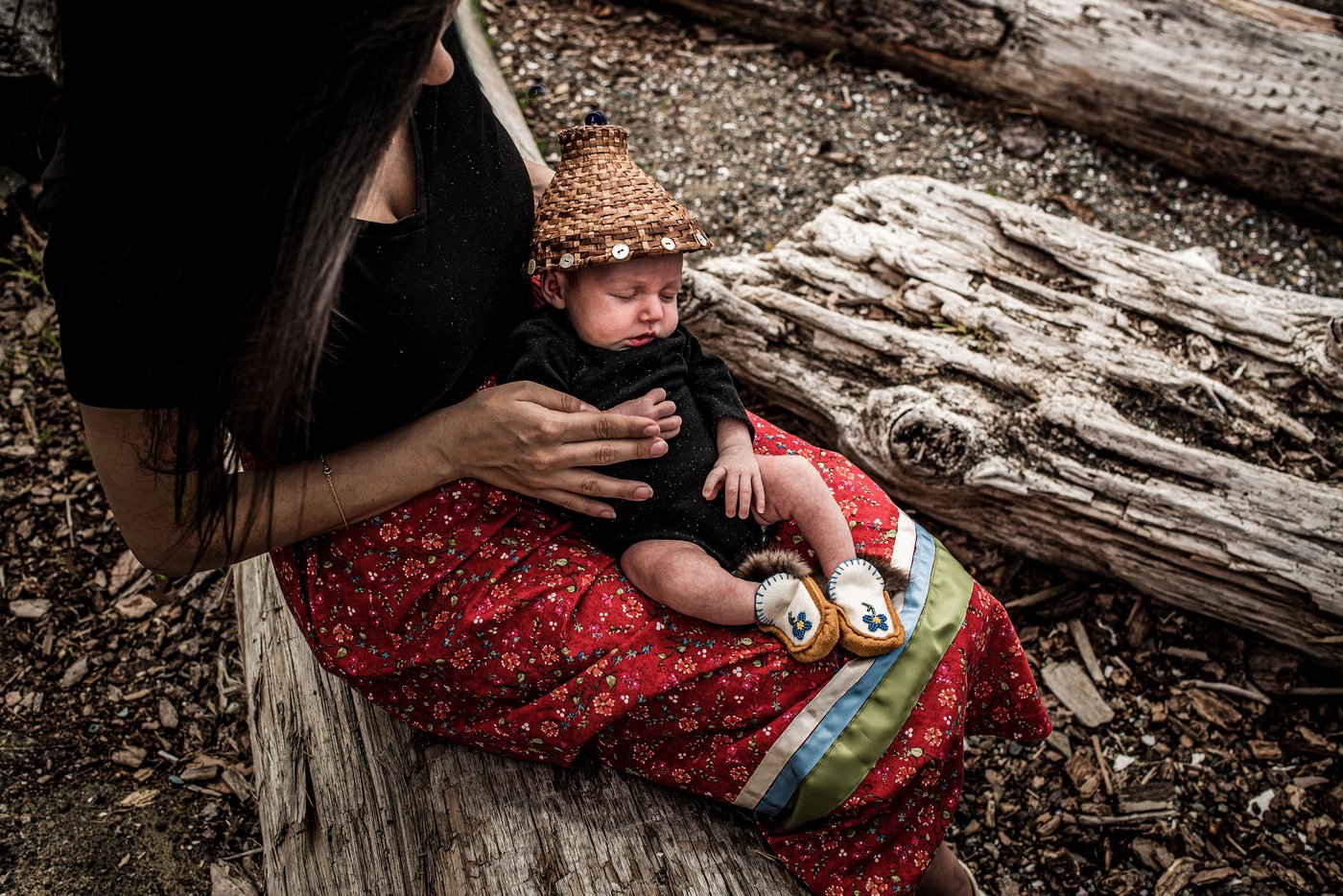B.C.’s proposed FOI fee threatens ‘Indigenous Peoples, families and communities’
Anna McKenzie, Local Journalism Initiative Reporter, The Discourse
As an Indigenous mom, journalist and B.C. resident, I’m concerned about the bill recently tabled by the B.C. government, which would introduce an application fee for (general) freedom of information requests.
If this change goes through, I fear it will make it harder for small news outlets like IndigiNews to justify filing shot-in-the-dark information requests — like the one that led to our birth alerts investigation.
Birth alerts are when social workers alert hospital workers about expectant parents they consider “high risk,” and ask to be notified when they come to give birth. These alerts often lead to social workers taking newborns into government “care,” and as previously reported by IndigiNews, they’ve disproportionately impacted Indigenous parents.
In 2018, 58 per cent of parents impacted by birth alerts were Indigenous.
In January, IndigiNews broke this story about birth alerts, revealing new information gathered through a freedom of information request and sparking calls for accountability — for the B.C. government to notify impacted parents and issue a public apology.
In September, a proposed class action was filed in B.C.’s Supreme Court on behalf of parents subjected to birth alerts in B.C., the first in a “national litigation effort,” according to a collaborative of law firms.
I fear that the proposed FOI application fee will impede reporters from breaking stories that, in my opinion, are life and death for Indigenous Peoples, families and communities.
For me, this is personal
As an Indigenous mother, I’d heard whispers in community about birth alerts and about newborns being taken from their parents in the hospital.
When it came time for me — a visibly Indigenous woman — to give birth to my daughter in June 2019, I was afraid. I made it clear in my birth plan that I wanted my white mother around to shield us from potential acts of discrimination at the Nanaimo General Hospital.
During my pregnancy, I was horrified to see a live-streamed video of a newborn being apprehended from their Indigenous mother in Manitoba. I will never forget the image of the baby being carried away in a car seat by the Winnipeg police.
Then, as I was giving birth to my daughter, news broke that an Indigenous infant was apprehended in B.C., 90 minutes after mom gave birth via C-section. This was the family’s first child, and they were “shocked,” according to APTN news.
What should have been a joyful time was overshadowed by my paralyzing fear that I would be judged as a new mom.
When my baby was born she wasn’t breathing on her own. She was immediately taken to the neonatal intensive care unit.
To this day, my husband, who is Snuneymuxw, and I both question whether it was necessary for the hospital to keep and observe us for so long. I experienced strange comments from nurses. One told me I was unable to use the moss bag I had made for my baby because it was “unsafe.”
Even after the B.C. government put a formal stop to the practice on Sept. 19, 2019, I continued to hear whispers about these alerts. So when I learned that Bayleigh Marelj, my then-colleague at IndigiNews, needed to file an FOI for a journalism school assignment, we decided to file one on birth alerts.
In October 2020, IndigiNews asked B.C.’s Ministry of Children and Family Development for: “All records including briefing notes and reports of birth alerts.”
On Nov. 23, 2020, IndigiNews received a 65-page records package, and in it was a document prepared for Katrine Conroy (MCFD’s minister at the time) dated June 28, 2019. It said MCFD had received a memo from B.C.’s Ministry of the Attorney General (MAG) advising them that birth alerts were “illegal and unconstitutional” and posed a “litigation risk” — four months before B.C. officially stopped issuing birth alerts.
For me, this served both as the shock of a lifetime, and also as validation — of a deep fear I felt but couldn’t articulate during my postpartum experience.
Without the information we received through the FOI, this story wouldn’t have been shared.
‘A significant step in the wrong direction’
In B.C., there are laws in place to ensure people’s personal privacy rights are protected, and to make public bodies more accountable to the public.
Under B.C.’s Freedom of Information and Protection of Privacy Act, people can request copies of records and personal information the government is holding about them or someone they’re responsible for through personal FOI requests.
They can also use FOIs to “access general information about non-personal information or records that could be released, in whole or in part, to anyone.”
It’s these general requests that are being targeted by a new bill tabled on Oct. 18 by Lisa Beare, B.C.’s minister of citizens’ services. Bill 22 proposes to amend FOIPPA by adding a prescribed application fee to general (but not personal) FOI requests.
Beare says she’s proposing a “modest” fee at around $25, according to CTV’s reporting. Currently, Alberta and Nunavut have the highest application fees at $25 per request, while Ontario, Nova Scotia, Prince Edward Island and the federal government each charge $5.
On Oct. 20, B.C. Premier John Horgan said, “We haven’t settled on a fee. The bill allows a fee to be set by regulation.”
Horgan says this proposed changes is necessary because people — particularly members of the Liberal party — are abusing the current system.
“Thousands and thousands and thousands of requests are not designed to better understand why decisions are being made, but instead they’re acting as surveillance,” Horgan says.
In response, the Canadian Association of Journalists released a statement on Oct. 28.
“Bill 22 takes the ‘free’ out of freedom of information,” writes CAJ president Brent Jolly.
“Whether it is about accessing information about COVID-19, police costs for the Fairy Creek blockades, and any points in between, this bill is anathema to democratic governance that blatantly disregards the public’s right to know.”
B.C.’s information and privacy commissioner, Michael McEvoy, also expressed his concern.
“This would be a significant step in the wrong direction,” he wrote in a letter addressed to Beare. “Application fees pose a real barrier for many who seek information that should be readily available to the public.
“I am unable to understand how this amendment improves accountability.”
On Oct. 21, instructors from journalism schools in B.C. shared their discontent in an open letter to Beare.
“We appreciate that some people may abuse the FOI system, placing undue pressure on government resources. But there are better ways of dealing with that challenge than a blanket $25 fee,” they wrote.
They added that this fee stands to hurt their students, “who often use FOI requests to uncover newsworthy information which they then publish through student newspapers.”
“Requiring students who are already struggling to pay for tuition and textbooks to pay $25 every time they want to access government records will discourage many of them from making such requests.”
IndigiNews asked Beare for an update on the proposed application fee.
“It’s important for people to know that we are listening to their feedback and will consider their input in the regulation-making process. It’s also important to note that those asking for their personal information will not pay a fee at all,” Beare wrote in an email on Nov. 17.
“The bill is now before members of the legislature and we will await the outcome of the debate and vote.”



